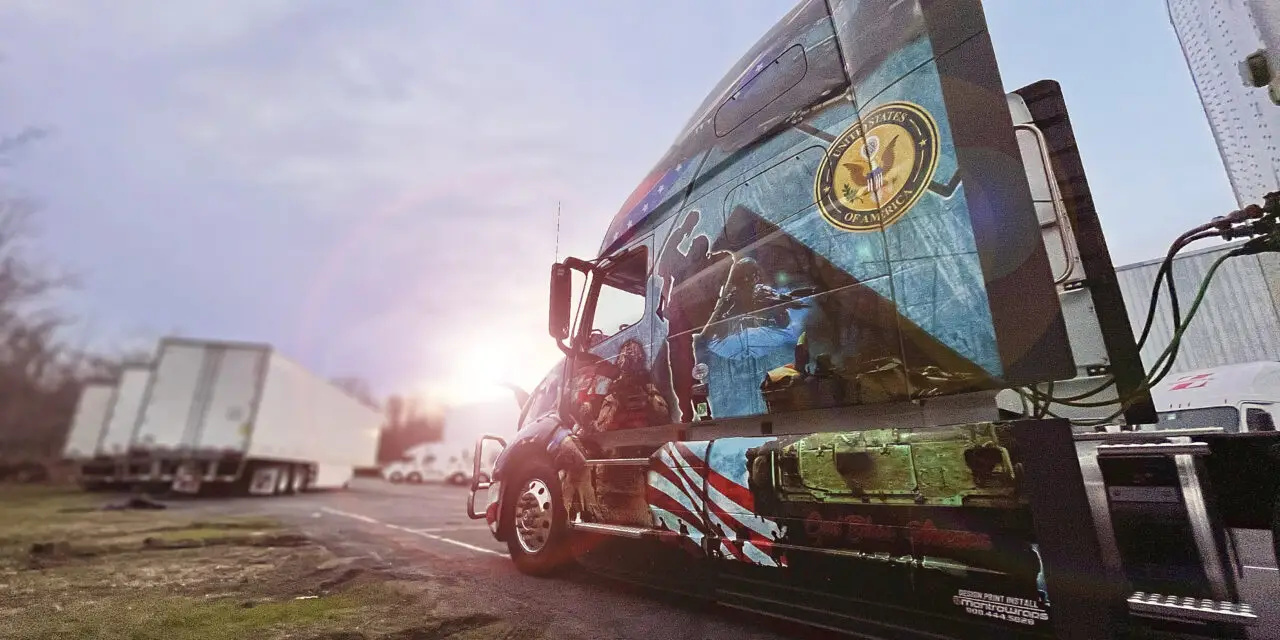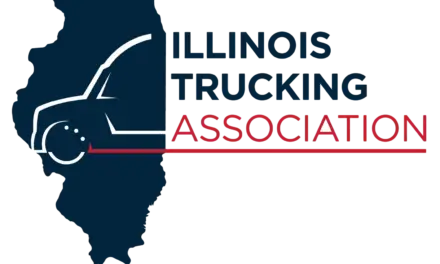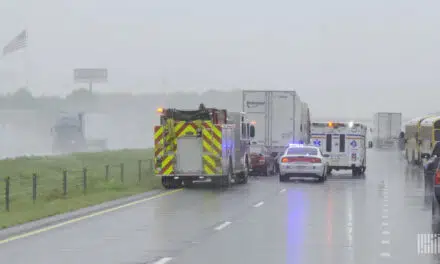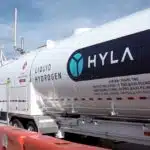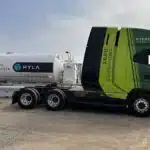WASHINGTON, D.C. — The White House offered an exclusive update on the Trucking Action Plan (TAP) with The Trucker 60 days after introducing the project.
President Joe Biden stated that the proposal is intended to support the trucking industry at a time when additional drivers are needed and the supply chain is under extreme stress.
“With more than 70% of all commodities in America transported by truck, America’s trucking workforce is important to the US supply chain and the broader economy,” Jennifer Molina, White House senior director of Coalitions Media, stated in a statement to The Trucker.
“However, aging infrastructure, the COVID-19 pandemic, and a record volume of goods moving through the economy have taxed capacity throughout the supply chain, including trucks.”
While more work remains, the White House stated that the TAP “had made significant progress in the last 60 days.”
According to the Biden administration, more than 20 firms have already signed up to engage in expanded registered apprenticeship programs, which are intended to help novice drivers transition into big rigs more quickly.
According to the White House, “partners such as the American Trucking Associations, the North American Punjabi Trucking Association, and the Minority Professional Truckers Association have stepped forward to collaborate with the government on expanding apprenticeships.”
Officials with the administration stated that they are aiming to “reduce red tape” to make it easier for drivers to obtain business driver’s licenses. The Federal Motor Carrier Safety Administration (FMCSA) announced a funding commitment of more than $32 million to assist states in upgrading their processing systems and providing technical assistance to expedite issuances.”
Additionally, the White House informed The Trucker that the Veterans Service Organizations, which represents almost 4 million military veterans, are now debating how the administration and industry can recruit, educate, place, and retain veterans in trucking positions.
According to the White House, the Departments of Labor, Transportation, Defense, and Veterans Affairs, as well as the Small Business Administration, have released a fact sheet to raise awareness about sixteen different federal programs that can connect transitioning military personnel and veterans with careers in the trucking industry.
“These programs will increase industry efficiency by linking businesses with tens of thousands of potential employees,” the White House stated. “One of the Department of Labor’s (DOL) Registered Apprenticeship programs is a highlight of these efforts.”
Additionally, the administration intends to target women in the trucking industry.
Secretary of Transportation Pete Buttigieg intends to sign the charter paper establishing the Women of Trucking Advisory Board this week.
As formed by the Bipartisan Infrastructure Act, this task committee will provide guidance on measures to boost the number of women in trucking.
According to the White House, “based on feedback from recent listening sessions with leaders and advocates, the task force will make recommendations to address the barriers to entry, on-the-job safety risks, workplace harassment, including sexual harassment, mentorship, quality training, and advancement opportunities for women.”
Additionally, the administration intends to sign a charter agreement establishing a new task force to conduct an investigation into fraudulent truck leasing arrangements.
The FMCSA, the Department of Labor, and the Consumer Financial Protection Bureau (CFPB) have organized a Truck Leasing Task Force to examine leasing arrangements and recommend changes that would improve leases’ equity and transparency.
Finally, the White House informed The Trucker that the administration intends to deliver a “comprehensive new action plan, informed by a series of Department of Labor and Department of Transportation listening sessions, outlining any additional administrative and regulatory actions the administration can take to support quality trucking jobs.”
The industry response to the initiative has been largely positive, however many truckers wish it addressed the nation’s lack of safe truck parking.
“As one of the top five industry challenges identified by professional drivers in a recent ATRI (American Transportation Research Institute) study, and as an issue that has been top of mind for years for companies and truckers, it is more than disappointing that specific funds were not earmarked to address this issue,” said Mark Walker, chairman and CEO of Missouri-based TransLand. “It’s incredible.”
Bill Sullivan, Executive Vice President of Advocacy for the American Trucking Associations (ATA), lauded the TAP, saying, “We are encouraged that the Biden Administration has not only recognized the importance of adding new and well-trained Americans to the trucking workforce, but has also announced a path forward with what we believe will be a robust training opportunity for future commercial truck drivers.”
The initiative was also welcomed by Shannon Newton, president of the Arkansas Trucking Association.
“We appreciate the president and his administration’s recognition of the critical job performed by men and women in the trucking sector,” she said. “We appreciate any effort to encourage and extend access to high-quality driving professions, as well as to alleviate the delays in acquiring a commercial driver’s license caused by the pandemic. We appreciate the opportunity to collaborate in introducing our industry to a new generation of drivers.”
Todd Spencer, president of the Owner Operator Independent Drivers Association (OOIDA), has expressed reservations.
“We support several aspects of the plan, including additional analysis of driver compensation and unpaid detention time,” Spencer added. “However, the strategy does not address the issue of overly high driver turnover. Attracting and training new drivers will not help the broader retention issue.”
Worthen, John

